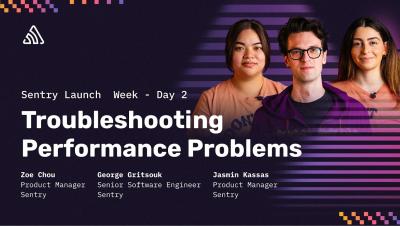Operations | Monitoring | ITSM | DevOps | Cloud
Sentry
Measure what matters and fix issues fast with Metrics: now in beta
Four years ago, we stepped on some big toes with our developer-first performance monitoring. Since then thousands of software teams have adopted our modern APM solution. But while Performance checks off a lot of boxes, some dev teams juggle separate tools for metrics, leading to a fractured experience. And honestly, what good is a metric without all the context you get from Sentry? Not very – it makes tying problems back to underlying errors or performance issues unnecessarily difficult.
Aspire Insights in Production with Sentry and OpenTelemetry
With the release of.NET 8, Microsoft released a new framework called.NET Aspire that’s shaking up the way distributed applications are crafted. Aspire makes it painless to configure and deploy distributed apps in.NET. You can check out the Aspire docs for a full rundown.
Sentry Performance monitoring product updates
We’ve been busy shipping updates! From getting to the exact line of code of a slow SQL query to quickly identifying which scripts, stylesheets, and fonts are blocking functionality on your page — we’re making it even easier to detect critical slowdowns and fix them faster.
What is INP and why you should care
On March 12th 2024, Google is launching a new Core Web Vital metric, Interaction to Next Paint (INP). INP will replace First Input Delay (FID) and will change the way your sites are assessed for performance by Google, which ultimately affects how your sites rank in search engine results. TL;DR: You need to start optimizing for INP today so your sites are not negatively impacted after March 12th.
Sentry Alert Rules: Fatal Errors
Setting up Sentry Alerts based on an issue’s level is one of the most effective ways to filter out noisy notifications and receive notifications for high priority errors. Follow along to this demo to see how.
Sentry Alert Rules: New Issues
Want to know when a new issue in Sentry starts to become a problem? Learn how the New Issue Alert Rule can help you prioritize new errors that need your attention. Follow along to this demo to see how.











